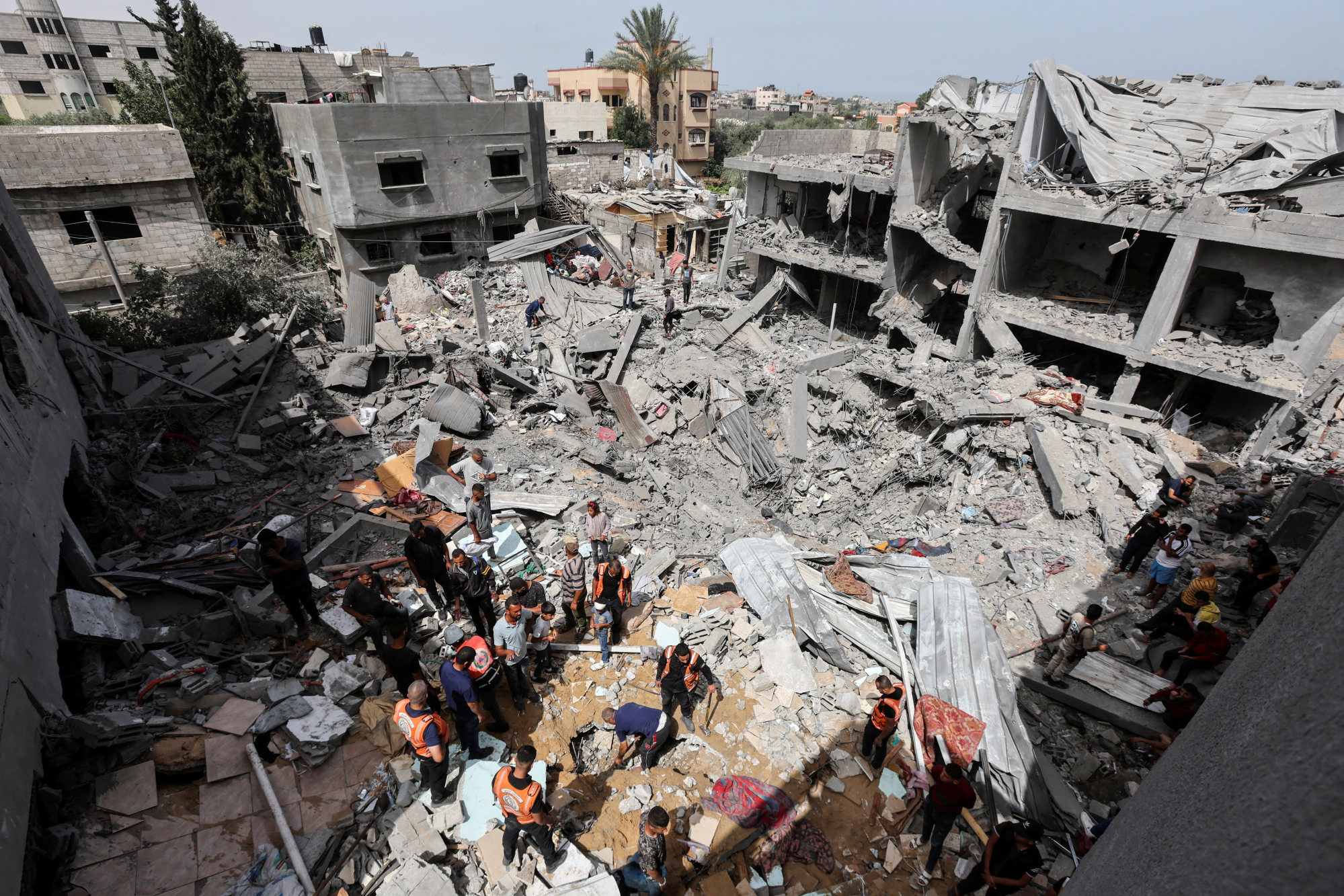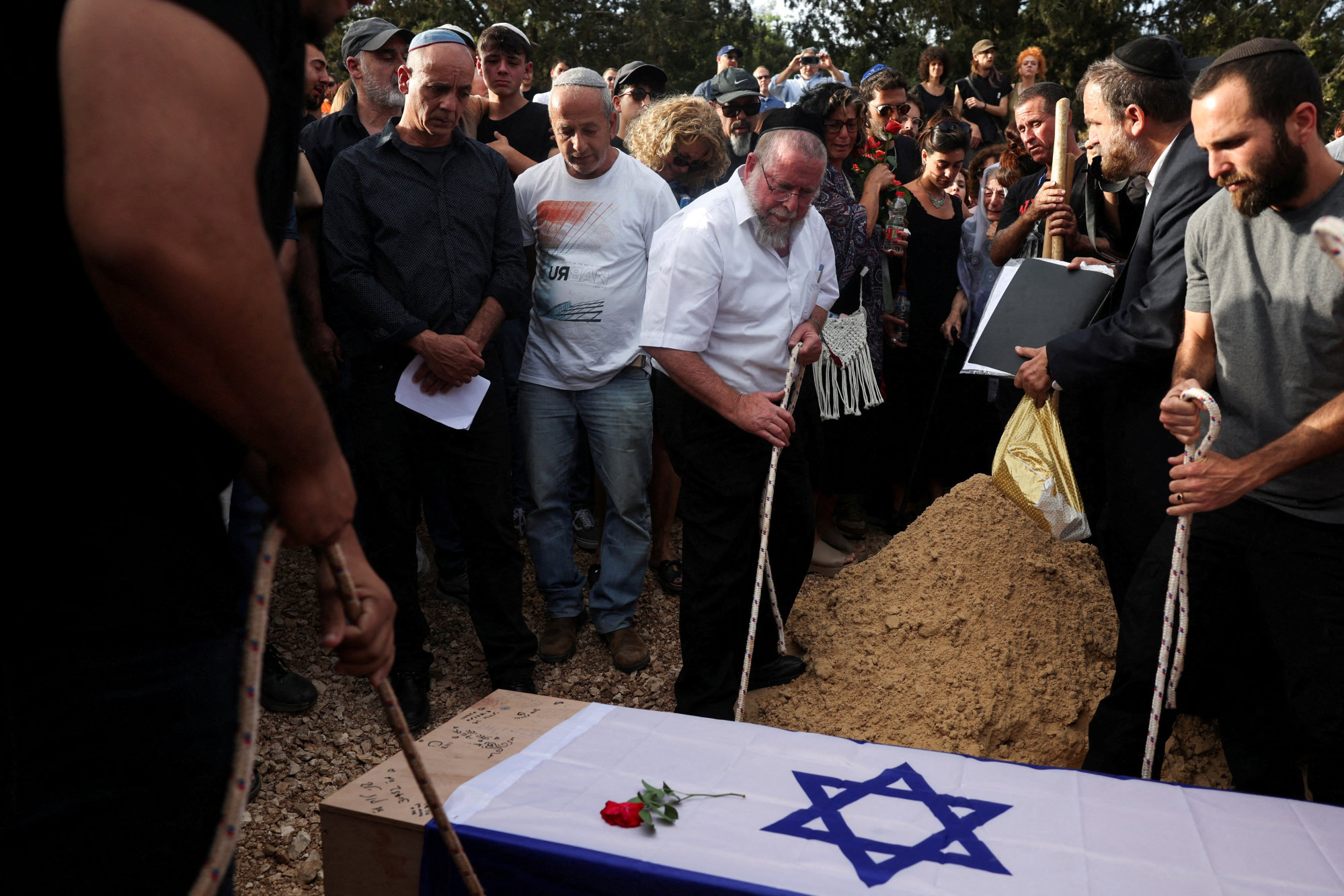The US said Sullivan said Israel should “connect its military operations to a political strategy” and proposed measures to ensure more aid “surges” into Gaza.
In recent weeks, Hamas militants have regrouped in parts of northern Gaza that were heavily bombed in the war’s early days.
The air strike in Nuseirat, a built-up Palestinian refugee camp in central Gaza dating back to the 1948 Arab-Israeli war, killed 27 people, including 10 women and seven children, according to records at Al-Aqsa Martyrs Hospital in nearby Deir al-Balah, which received the bodies.
A separate strike on a Nuseirat street killed five people, according to the Palestinian Red Crescent emergency service. In Deir al-Balah, a strike killed Zahed al-Houli, a senior officer in the Hamas-run police, and another man, according to the hospital.

Palestinians reported more air strikes and heavy fighting in northern Gaza, which has been largely isolated by Israeli troops for months and where the World Food Programme said a famine is under way.
The Civil Defence said strikes hit several homes near Kamal Adwan Hospital in Beit Lahiya, killing at least 10 people. And in the urban Jabaliya refugee camp nearby, residents reported a heavy wave of artillery and air strikes.
Abdel-Kareem Radwan, 48, said the whole eastern side has become a battle zone where the Israeli fighter jets “strike anything that moves”.
Mahmoud Bassal, a spokesman for the Civil Defence, said rescuers had recovered at least 150 bodies, more than half of them women and children, since Israel launched the operation in Jabaliya last week.

The war has killed at least 35,000 Palestinians, according to Gaza’s Health Ministry, which does not distinguish between combatants and civilians. Around 80 per cent of the population of 2.3 million Palestinians have been displaced within the territory, often multiple times.
“We need a decent life to live,” said Reem Al-Bayed, who left Gaza City and shelters with thousands in the gritty coastal Muwasi camp in the south without basic facilities like wells. “All countries live a decent life except us.”
She took a quick mouthful of bread before tearing the rest into pieces for half a dozen children, then poured them a can of beans.
Israel claims it tries to avoid harming civilians and blames the high death toll on Hamas, which it says operates in dense residential areas.
Netanyahu’s critics, including thousands of Israeli protesters, accuse him of prolonging the war and rejecting a ceasefire deal so he can avoid a reckoning over security failures. They also seek early elections in which polls show that Gantz, a political centrist, would be likely to succeed Netanyahu. That would expose Netanyahu to prosecution on long-standing corruption allegations.
Netanyahu denies any political motives and has said the offensive must continue until Hamas is dismantled and the estimated 100 hostages still held with the remains of more than 30 others are returned.
But last week, after Israel launched what it called a limited operation in Rafah, the Biden administration told legislators it would move forward with the sale of US$1 billion worth of arms, according to congressional aides.

